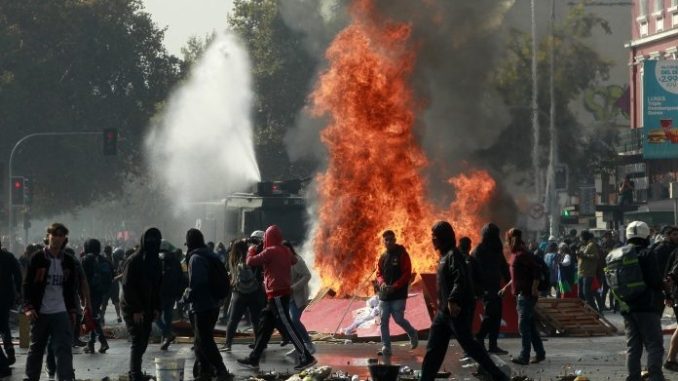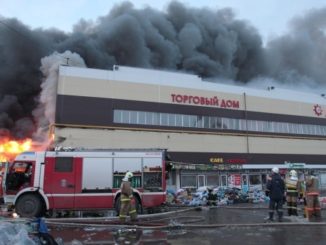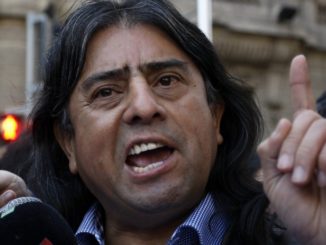
SANTIAGO – Thousands of Chileans went out to the streets of the capital Tuesday to commemorate Labor Day, demanding that the government, among other things, dignify the social role of the working class and stop the dismissals of public officials.
More than 40,000 workers, commanded by the Central Unitaria de Trabajadores and other labor unions, demanded “a better labor treatment” and changes to the labor reforms of Sebastián Piñera.

One of the massive marches towards Plaza Italia ended with clashes between demonstrators and members of the Special Police Operations Group of Carabineros de Chile (armed police).
The first of them, convened by the Central Unitaria de Trabajadores (CUT), began in Plaza Los Heroes, two blocks from the seat of the Executive and culminated in Avenida Portugal, which was attended by thousands of people. It concluded without incident and with the presentation of artistic numbers.
Ya somos miles los que marchamos en un nuevo #DiaDelTrabajador junto a la CUT✊?✊?✊? #1roDeMayoCUT pic.twitter.com/a4MS9fDAQB
— CUT Chile (@Cutchile) May 1, 2018
But, the second march organized by the Central Clasista de Trabajadores, which started in the same place, ended in front of the University of Santiago de Chile.

Several hooded men raised barricades, lit bonfires and clashed with the special forces. The police had to use jets of water to alleviate the disorders caused by groups that were located in the back of the march.
So far, no official number of detainees has been reported.
Ahora: Algunos incidentes se registran en #MarchaClasista en el #DiaDelTrabajador en Chile, pese a estar autorizada la policia interviene multitudinaria marcha. pic.twitter.com/pcF25mpaam
— ChileOkulto (@Chileokulto) May 1, 2018
The president of the CUT, Bárbara Figueroa, said in a speech after concluding the demonstration, that “if you intend to make changes to labor legislation, it can only be through laws that these changes can operate.”
“Decent work is not just more employment. Decent work requires as a basic principle to value and dignify the worker as a subject of law,” it was part of Figueroa’s speech.
Convene a debate on rights and responsibilities, is what the head of the CUT considers to advance with more social justice in Chile. “Chile is the home of all, but today there are many who are immersed in poverty,” added Figueroa, who called on the authorities and institutions to fulfill their promises on labor and dignity.
He said that as a trade union organization they are willing to contribute with proposals. “Giving us serious and respectful treatment does not violate the channels of democracy and allows the legitimate debate of differences”.

On the other hand, Figueroa warned that if the Executive intends to make changes to labor legislation “it can only be through laws that these changes can operate.”
Figueroa told reporters that the announcement of this Tuesday “was much greater than some expected.”
“Here the union world is represented and until now there is no other organization that has the capacity to take this demonstration to the street,” he said.

The marches of the workers in Chile, in which parliamentarians and immigrants also participated, were replicated in the cities of Iquique, Coquimbo, Valparaíso and Concepción, among others.
Meanwhile, President Sebastián Piñera celebrated May Day in an event held at the Worker’s Hospital in Santiago, where he announced four measures that he hopes to apply in his government in labor matters: universal nursery, prioritize early education, implementation of the Inclusion Law and improvements to the training system.
Labor Day: Piñera pledges universal nursery, work-at-home jobs
He also spoke of the importance of creating many good jobs. “There is no better labor policy than full employment. When there is full employment, wages rise, working conditions improve, employers are more concerned about the quality of life of their workers and nobody lives with fear of losing their jobs,” said the president.
Workers from different countries celebrate International Labor Day on Tuesday, May 1st with demonstrations and events to demand that their governments address labor issues.
Although the day is a holiday in many countries, in others the activities are restricted, which usually leads to confrontations.



